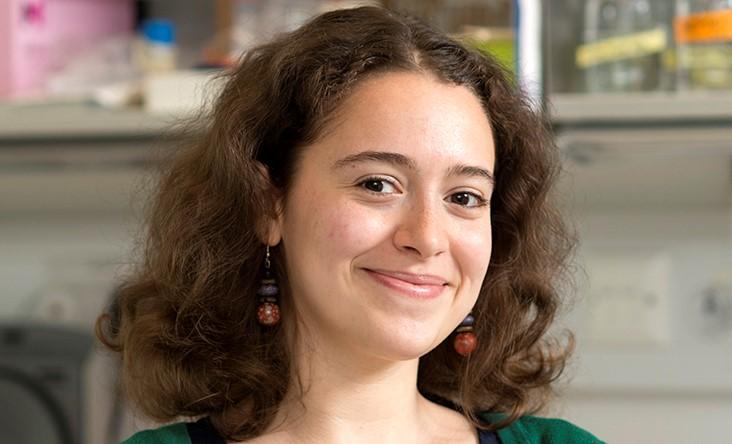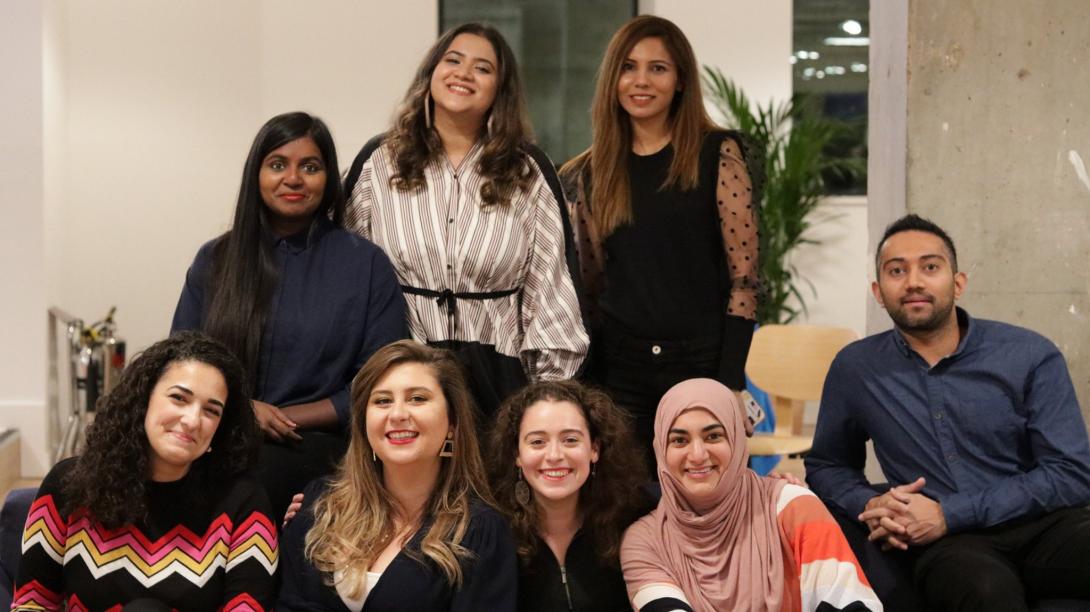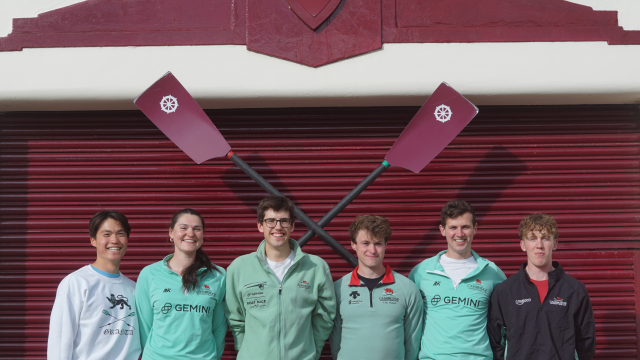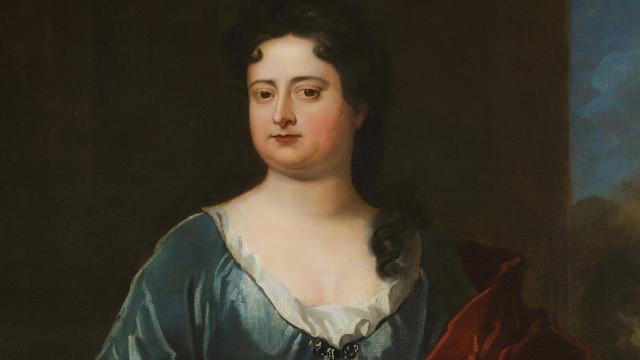
Grants made possible thanks to the generosity of St Catharine’s alumni have enabled a postgraduate student to advance how technology can be used to support and protect survivors of gender-based violence. Since she joined the College in 2016, Dina Ashour’s has been closely involved with a global non-profit organisation called CHAYN and, more recently, runs the COVID-19 Domestic Violence Task Force UK/EU – all while researching and defending her PhD in molecular biology.
Dina reflects, “As a biologist in Cambridge, I am in a privileged position because I am immersed in cutting-edge technology that is in constant use in laboratories around the world, and have experienced first-hand the biases and challenges that are part of the development of science and technology before they ever reach their end user. These factors – such as academic silos and lack of interdisciplinary collaboration – have also shaped our understanding of gender-based violence and the role of technology. As a prominent example, it became evident from the Task Force’s research that researchers studying digital mental health support do not study existing tools for their effectiveness in people who experienced trauma, despite domestic abuse leading to staggering increases in ill mental health and suicide attempts. I am committed to overcoming these obstacles so we can start to prioritise the needs and preferences of survivors.”
Gaining experience and insight with CHAYN
Dina first developed an understanding of gender-based violence through her voluntary work for CHAYN (pronounced ch-ay-n, meaning “solace” in Urdu), which is run by survivors and allies from around the world. She explains:
“I signed up to join CHAYN in 2015 because I wanted to find ways to connect with and support the society I was living in while abroad based at Institut Curie in Paris. I continued to be involved as a volunteer, project lead and executive team member for CHAYN when living in Hamburg and Cambridge. I have been so convinced of and inspired by CHAYN’s vision and founder Hera Hussein, who has been recognised by a multitude of awards.”
One of the CHAYN projects that Dina was responsible for was ‘Do It Yourself Online Safety’, a resource for women to use information technology safely. She was invited by the French charity Centre Hubertine-Auclert to present the project to an audience of domestic abuse practitioners, government officials and non-governmental organisations at a conference in Paris about emerging challenges and tools for protection associated with cyber violence in intimate relationships and sexist/sexual cyber violence.
“As the conference organisers were not in a position to cover my expenses, the College grant of £100 from the Graduate Travel & Research Fund made it possible for me to raise awareness of the progress that the CHAYN team had made with the ‘Do It Yourself Online Safety’ guide and engage with a diverse audience of people who could make use of the guide and help disseminate it to survivors. I am grateful to the St Catharine’s alumni who kindly give to the College so current students can continue to seize opportunities like this."
She was also the project lead for a service called Soul Medicine, which in its prototype provided refugees in Europe with education and language acquisition to promote mental wellbeing and confidence through learning and since has been upscaled to be used by any person experiencing abuse:
“I designed the syllabus for the prototype course on human biology and coordinated the crowd-sourcing process and editing of the 80+ lessons containing courses to empower individuals by applying their knowledge about their bodies. Soul Medicine has been developed with the help of the social innovation incubator EmpowerHack and was awarded funding of £50,000 by Comic Relief to upscale the service further.”
A third project led by Dina was ‘Getting Better and Moving On’, a step-by-step guide to enable people leaving abusive relationships to regain their wellbeing and improve their mental health. Dina created the general structure of the guide based on design thinking, managed the team of volunteers researching and creating content and liaised with web developers to create an online user experience that was empathetic and nurturing. The guide offers directly actionable information on how to:
- deal with low self-esteem, anxiety, depression and PTSD symptoms,
- access online professional mental health support and
- access professional mental health support from practitioners available through public and private practitioners in India, Pakistan and the UK.
Founding the COVID-19 Domestic Violence Task Force UK/EU
Dina joined the COVID-19 Domestic Violence Task Force UK/EU early on and soon became an integral part of the leadership team. The volunteer-run project aims to improve the situation of survivors and victims of domestic abuse (especially BME, migrant and LGBTQ+ people) in the United Kingdom and the European Union by facilitating knowledge exchange and innovation through impactful research and online workshops. Even at this early stage, more than ten other St Catharine’s students are involved.
“I never thought that I would spend the final year of my PhD building an organisation but it is essential that we understand issues at the intersection of domestic abuse, society, technology and the state. The Task Force produces original research that identifies how abuse could be intercepted and survivors better supported, particularly pertaining to improving state policy and collaboration within research, state and non-state institutions. As an executive, I am responsible for the organisation strategy, recruitment, community management, social media strategy as well as overseeing the progress of all projects and leading a research team on bias in domestic abuse data.”
The Task Force has already hosted two workshops to bring together relevant stakeholders and produce policy recommendations.
“I was thrilled when the College agreed to provide a grant of £120 from the General Endowment Fund so that the Task Force could cover the cost of registering for a Zoom account for our most recent workshop on digital mental health support for survivors of abuse. This enabled us to welcome more than 100 participants, including digital health researchers, medical professionals, survivors and relevant charities.”
As Dina finishes up her research in Cambridge, she is looking forward to continue leading the Task Force which she has found very rewarding:
“The last two years were incredibly difficult for everyone and, while volunteering takes time and effort, it was also a source of hope and joy. There is really nothing better than seeing people use their time and energy to help others. It was and is an immense pleasure to get to know the Task Force volunteers and create a community based on solidarity and kindness.”
Find out more about St Catharine’s support for survivors of domestic abuse.







